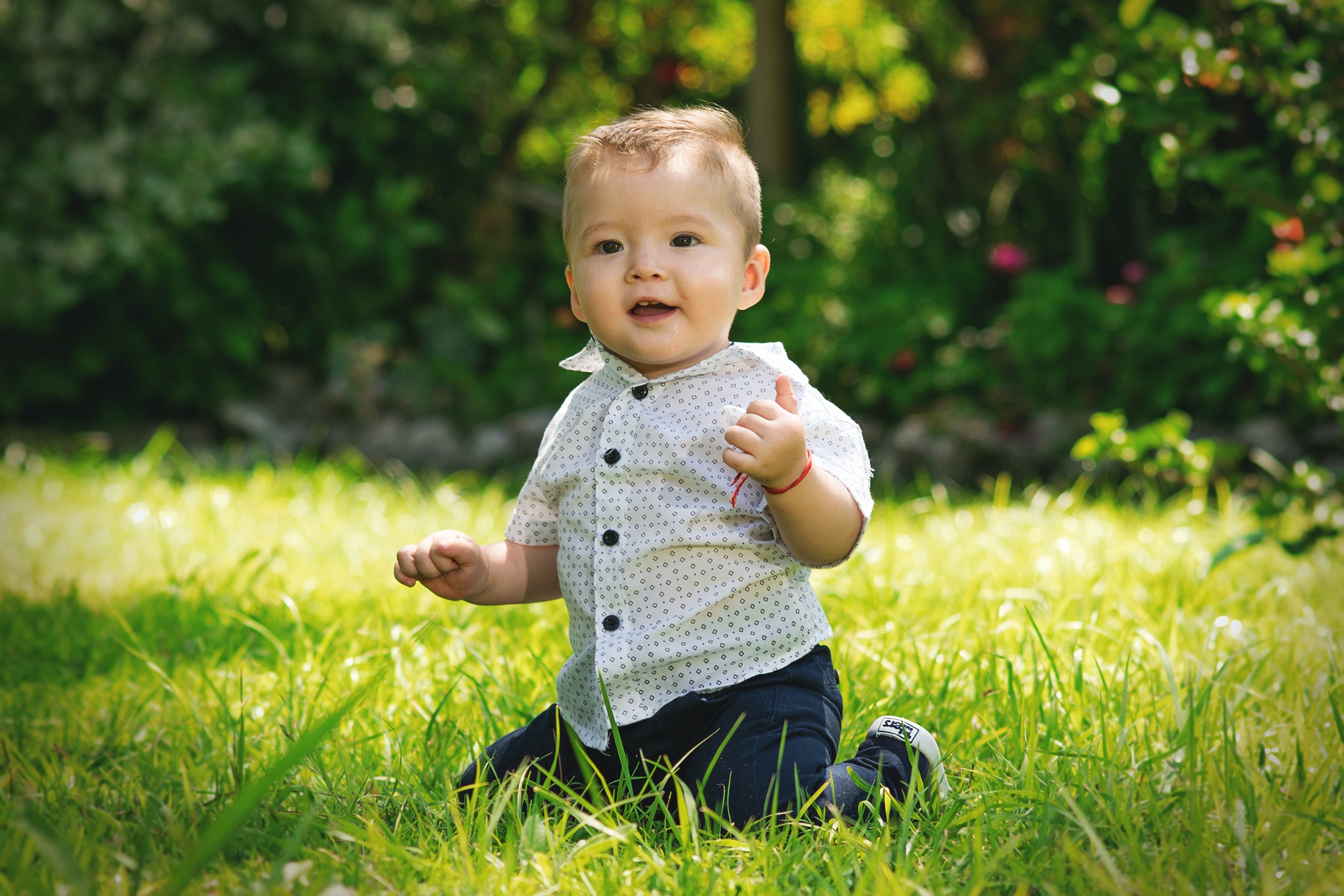When the clocks go forward

By Angela Wilson
Certified child sleep consultant, MA Natural Sciences Cambridge University and co-founder of Baby Smiles Club
When the clocks go forward, most of us think of spring and the warmer days and lighter evenings ahead. Yes, we might lose an hour’s sleep, but it’s not much bother. Unless you have a baby or toddler, and you’re worried their routine will be thrown out of whack!
A good routine can do wonders for a child’s sleep. And that’s largely due to the body clock. Science tells us that to get our best sleep, we not only need to get enough sleep, but to sleep at consistent and appropriate times – and to have a well-tuned body clock.
Now, babies and toddlers can’t tell the time. Which means if they’re on a good routine and the clocks go forward, they’ll just wake up when they would normally have woken up. If they’re an early riser and you’ve been trying to make morning wake a little later, great, this might help! But otherwise, you might worry that their sleep is going to go out of kilter…and memories of sleepless nights make you keen to avoid this!
So what’s the best way to help your child shift to the new time?
How to help your baby or toddler when the clocks go forward
Babies and toddlers are natural 'larks'. It's because the production of cortisol (the 'awake' hormone) rises sharply from around 6am. Which means that around 6am–7am is a common morning wake time for them. And an early bedtime (around 6:30pm - 7:30pm) works best.
Let’s say your child usually sleeps until 6:30am. When the clocks go forward, if they wake in line with their body clock, this would mean a 7:30am wake. But if, say, you need them to be up by 7am to make it to nursery in time on the Monday after the clock change, it’s best to adjust their routine. It’s much nicer for them to wake naturally, full of energy and ready to start the day, than to be woken from their sleep feeling a little tired.
Let’s say, on the other hand, that your child is an early riser, and typically wakes around 5:30am. And you’d love them to sleep later – either because you think they could do with a little more sleep, or so you don’t have to get up so early yourself! You can use the clock change to try to reset their body clock a little. You’ll need to make some adjustments to their routine to make the rest of the day work.

How to adjust your child's routine
If your baby or toddler is well established on a routine, don’t worry that it’s going to be destroyed by the clock change. Your child is used to knowing what follows what, so if you make some adjustments over a few days, the change shouldn’t cause too much disruption.
So how best to adjust things?
- You can start making adjustments a few days before the clocks change, or you can wait until they’ve changed. It depends what’s going on in the few days running up to the clock change, and what will work best for your child and family.
- What to adjust depends on where you want to end up. Let’s say your child is currently in a routine that’s working really well (for them and you) – say a 7pm bedtime and a 7am morning wake. You therefore need to shift things to being an hour earlier. It’s not an exact science, but you want to shift your child’s routine incrementally, and to bring forward bedtime, nap times, feeds and meals without causing too much disruption.
- In changing timings, you need to be mindful of your child’s ‘Sleep Windows’ – a window in which a child is nicely tired and feeling sleepy, and not undertired or overtired. Simply putting your child to bed an hour earlier the evening before the clocks change and hoping they’ll wake up an hour earlier in the morning probably won’t work (unless they could do with an earlier bedtime in general) – they’ll probably be confused as to why they’re going to bed so early, and not tired enough to fall asleep.
- Aim for around a 15 minute shift per day, but don’t get too hung up on being too precise, and be guided by how much earlier you think they might be able to sleep. Bringing feeds and meal times earlier will really help, because a child following a routine knows what follows what! As will bringing forward bedtime rituals, which are a great way to make your child feel relaxed and loved before bedtime, as well as signalling that bedtime is close!
- Let’s say you’re making the changes BEFORE the clocks change, and you’re working off a 7am morning wake and 7pm bedtime. On the first day, aim for a 6:45pm bedtime and 6:45am morning wake the next day, with all naps, feeds and meals on that next day being brought forward by 15 minutes. And then 6:30pm/6:30am the next day, and so on. But remember, it’s not an exact science!
- On the other hand, let’s say that you’d ideally like to shift your child’s routine a little, perhaps so they don’t have such an early morning wake. Firstly, it’s important to understand why they might be having early morning wakes – it could be they’re getting all the sleep they need, and this is the routine they’ve fallen into. But it could be due to overtiredness (which is one of the most common causes of early morning wakes), or something else is bothering them (like being too hot or cold, or needing a nappy change). One of the best ways to help with overtiredness is an earlier bedtime. Once you’ve worked out what’s going on, then you can make some adjustments to help.
Anything else to bear in mind?
Spring and summer time means longer days and shorter nights. It means it will be lighter in the evening during your child’s bedtime rituals and at bedtime. Having a dark sleep environment is important for good sleep, so do what you can to make your child’s room dark before they head in for bedtime.
Our Baby Sleep Program is designed to help your baby sleep well, whilst fostering and strengthening the parent-child bond. Angela also provides individual sleep consultations for babies and toddlers. We can show you how to gently build up to an age-appropriate routine, and how to adapt this as your child grows.

